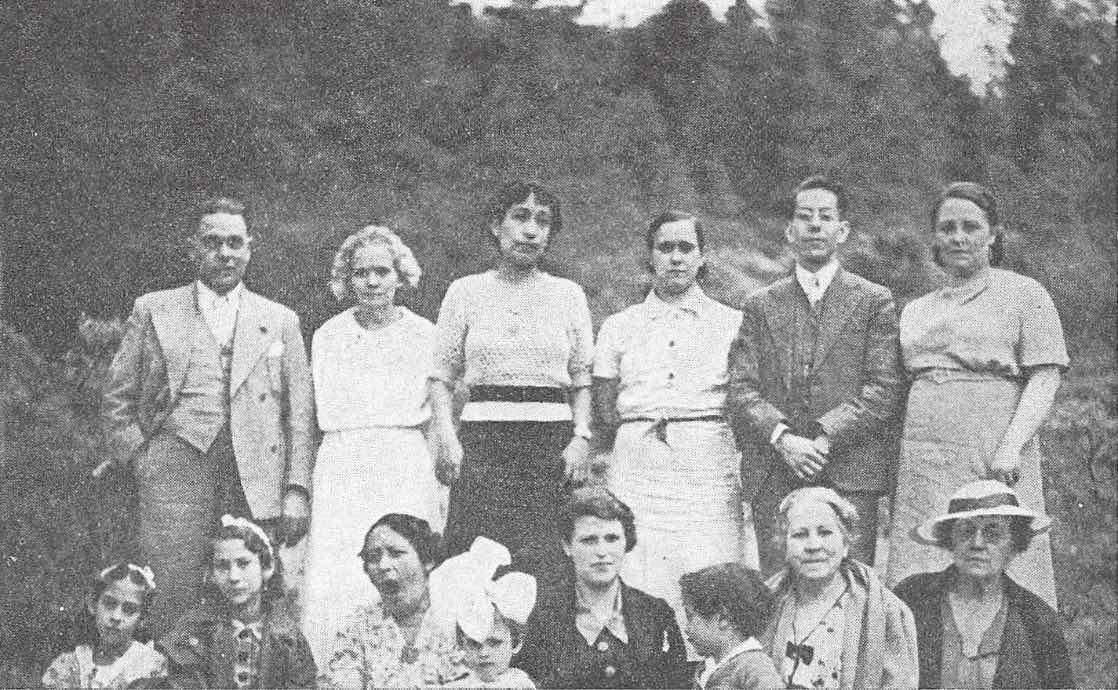In the panorama of religious and philosophical movements, the Bahá’í Faith has emerged as a profound synthesis of spiritual teachings with practical applications. Particularly notable is the establishment of the Bahá’í community in Mexico, marking the genesis of the first Latino Bahá’í community in the 1930s. This development has greatly influenced not only the spiritual landscape of Mexico but also the broader narrative of Latino spirituality in the Americas. Such a transformation offers invaluable insight into the intertwined nature of culture, faith, and community.
To understand the significance of this pioneering community, it is essential to delve into the historical context that preceded its formation. The early 20th century in Mexico was characterized by a tumultuous political landscape marked by the Revolution (1910-1920). Amid this backdrop, there was a palpable yearning for spiritual renewal. The Bahá’í Faith, with its emphasis on unity, justice, and the eradication of prejudice, resonated deeply with the Mexican populace’s aspirations for social harmony and national identity. This movement provided a compelling alternative to traditional religious practices that were often steeped in division and exclusion.
The Bahá’í teachings, primarily articulated through the writings of Bahá’u’lláh, stress the essential oneness of humanity. Central to these teachings is the concept of the interconnectedness of all people, transcending racial, national, and religious boundaries. When the first Latino Bahá’ís embraced these principles, they began to forge not just a community but a radical new identity that emphasized inclusivity and harmony. This was particularly revolutionary in a society historically marked by stratification and conflict.
The formation of the Bahá’í community in Mexico was catalyzed by the efforts of individuals such as Pedro Espinosa and other early adherents who were pivotal in disseminating the Bahá’í teachings. Their fervent dedication led to the establishment of study circles, public meetings, and outreach initiatives aimed at fostering understanding and acceptance of Bahá’í principles. The first community gatherings provided a sanctuary for those seeking spiritual sustenance, education, and companionship—a refreshing departure from the conventional religious establishments of the time.
As the community flourished, it became a microcosm that reflected the diversity and richness of Mexican culture. The Bahá’ís adopted a more inclusive perspective on spirituality that harmonized indigenous beliefs and values with the universal principles of the Bahá’í Faith. This melding of traditions fostered a deeper connection to local customs, positioning the community as not merely a foreign entity but as a homegrown movement rooted in the Mexican spirit.
The Bahá’í community in Mexico also became a vibrant tapestry of social action. Motivated by the core Bahá’í principle of service, members engaged actively in social, economic, and educational projects. Initiatives such as promoting literacy, women’s empowerment, and social justice resonated profoundly within the community and beyond. This commitment to improving the conditions of the less fortunate exemplifies the Bahá’í principle of elevating the status of humanity through meaningful deeds and action.
One cannot overlook the critical role of education in the evolution of the first Latino Bahá’í community. The teachings of the Bahá’í Faithplace immense value on knowledge and learning. Consequently, formal and informal education programs were developed, fostering a culture of intellectual inquiry and ethical development. The establishment of Ruhi Institute courses and educational workshops facilitated the proliferation of Bahá’í knowledge among community members, empowering them to become advocates for their beliefs and agents of social change.
The narrative of Mexico’s first Latino Bahá’í community invites reflection not only on the transformation of individuals but also on the broader implications for society. The community has served as a beacon of hope, embodying the aspiration for a unified world where diversity is celebrated and differences are harmonized. It stands as a testament to the power of faith as a catalyst for societal change.
Looking ahead, the journey of the Bahá’í community in Mexico continues to evolve. New generations of Bahá’ís are emerging, grappling with the complexities of modernity while remaining anchored in their spiritual commitments. They are called to confront contemporary issues such as climate change, human rights, and economic disparities with both innovative approaches and time-honored principles of service and oneness.
In conclusion, the emergence of Mexico’s first Latino Bahá’í community is not merely a chapter in the history of the Bahá’í Faith but a profound manifestation of cultural and spiritual synthesis. It is a story of resilience, dedication, and aspiration. As we reflect on this pioneering community, we celebrate its achievements while also recognizing the challenges that lie ahead. The teachings of Bahá’u’lláh calling us toward unity and collaboration serve as a guiding star for future endeavors, inviting all humanity to join in the noble quest for a just and harmonious world.
